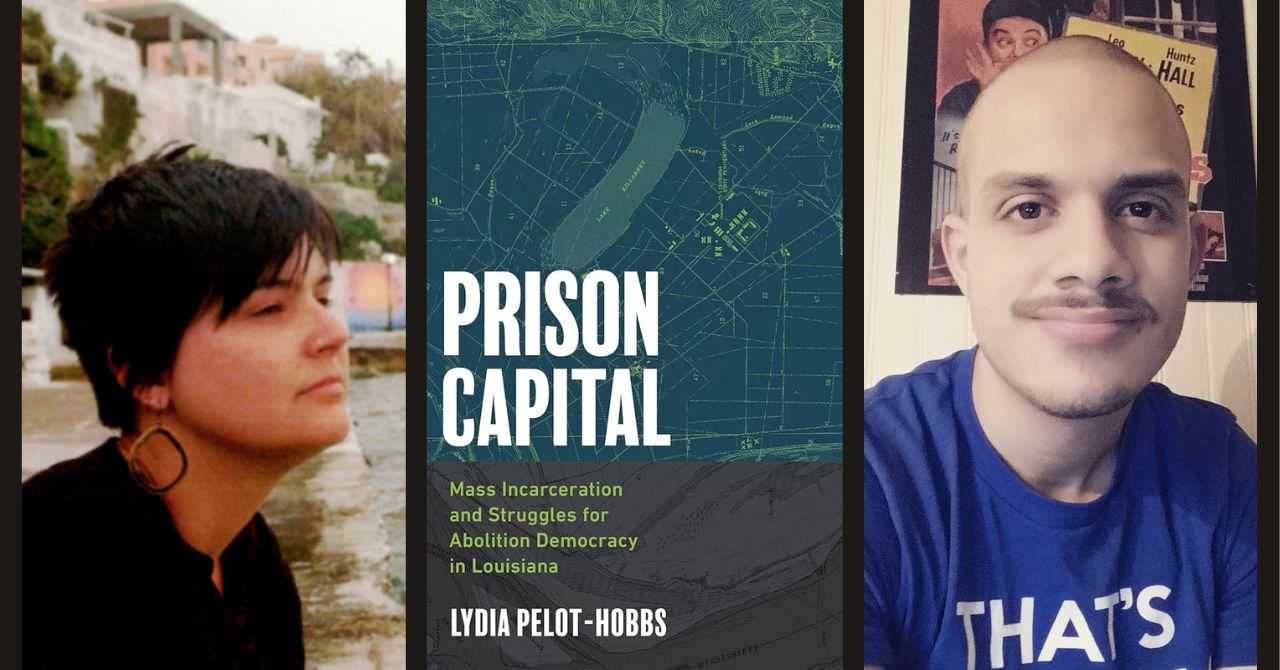- Cafe
- Bookstore
- Upcoming events
- Book an event
- Catering
- Institutional and bulk sales
- About Red Emma's
- Press
- Buy gift cards
- Red Emma's merch
- Donate to the Red Emma's Education Fund

Lydia Pelot-Hobbs presents "Prison Capital: Mass Incarceration and Struggles for Abolition Democracy in Louisiana" in conversation w/ Mike Casiano
This event has already happened.
Through extensive research, Lydia Pelot-Hobbs illuminates how policy makers enlarged Louisiana's carceral infrastructures with new prisons and jail expansions alongside the bulking up of police and prosecutorial power. At the same time, these infrastructures were the products of multiscalar crises: the swings of global oil capitalism, liberal federal court and policy interventions, the rise of neoliberal governance and law-and-order austerity, and racist and patriarchal moral panics surrounding "crime." However, these crises have also created fertile space for anticarceral social movements. From incarcerated people filing conditions of confinement lawsuits and Angola activists challenging life without parole to grassroots organizers struggling to shrink the New Orleans jail following Hurricane Katrina and LGBTQ youth of color organizing against police sexual violence, grassroots movements stretch us toward new geographies of freedom in the lineage of abolition democracy. Understanding Louisiana's carceral crisis extends our understanding of the interplay between the crises of mass criminalization and racial capitalism while highlighting the conditions of possibility for dismantling carceral power in all its forms.
Lydia Pelot-Hobbs is an Assistant Professor of Geography and African American & Africana Studies at the University of Kentucky. Her research and teaching focuses on the carceral state, racial capitalism and grassroots social movements. She is the author of PRISON CAPITAL: MASS INCARCERATION AND STRUGGLES FOR ABOLITION DEMOCRACY IN LOUISIANA (UNC Press) and co-editor of THE JAIL IS EVERYWHERE: ORGANIZING AGAINST THE NEW GEOGRAPHY OF MASS INCARCERATION (Verso).
Mike Casiano is an assistant professor of American Studies at the University of Maryland, Baltimore County. His research examines the relationship between policing, urban governance, and municipal growth in postbellum Baltimore. He has participated in grassroots housing justice efforts as a member of Charm City Land Trusts, the city’s oldest community land trust, since 2016.

